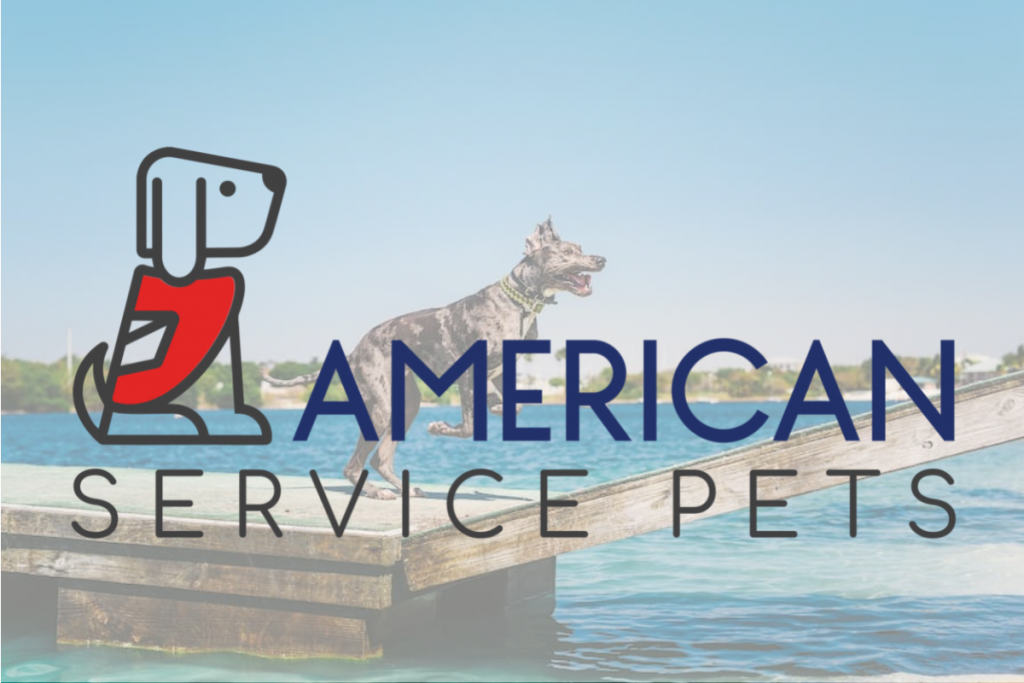How to Get Your Emotional Support Animal Certification
in Maryland

Many people find comfort, support, and effective treatment for emotional disorders in a furry little animal. An Emotional Support Animal (ESA) is a great asset to anyone coping with PTSD, eating disorders, anxiety, depression, bipolar disorder, ADHD, and panic attacks. That’s why it’s so important to recognize these animals and the health rewards they provide.
Finding a rental home or any establishment that allows pets takes time, patience, and often a substantial amount of cash. Landlords can enforce strict pet policies, deposits, and fines to avoid costly pet damage to the property, no matter how beneficial the animal is. Tenants with undocumented support animals could face a day or two in court and all the costs associated with it.
The Federal Fair Housing Act gives ESA owners the right to keep their companions in their homes with them. Landlords aren’t permitted to charge a pet deposit or levy additional fees against anyone with an ESA in Maryland. They must have legitimate approval, however.
American Service Pets helps tenants get the authorization needed for their qualified animal. See if you meet the criteria for a Maryland ESA letter today below.
The Rewards of Having an Emotional Support Animal
Most qualified support animals are canines, but they can be of any species that provides emotional support. Their presence is calming and can help in moments of panic, anxiety, and emotional overload. They also have some extra benefits, including:
True Love & Appreciation
Emotional Support Animals provide love and loyalty when people need it most. Their presence can help their owners move through the psychologically frustrating parts of life. Snuggling and playing with an ESA can help lessen many routine stressors.
Relief From Loneliness
Social relationships have a considerable influence on mental health. Support animals work extremely well as loyal companions. Sharing your life with an ESA can make you feel less lonely and more connected to your friends, family, coworkers, and environment.
Natural Medicine
An ESA can have a soothing influence when its owner deals with everyday pressures and can help keep emotions under control when things get overly stressful. It’s a worthwhile alternative for anyone who chooses to steer clear of prescription drugs to treat stress, anxiety, and other symptoms of emotional issues.
Physical Rehabilitation
The recovery process is a bit easier when you have a qualified animal to keep you company. People recovering from a stroke, heart attack, broken bones, and addiction can find comfort and encouragement in their animals. An ESA boosts your spirits and morale anytime you’re down.
American Service Pets helps pet owners coping with emotional issues register for their animals.
Find out if you qualify for a Maryland ESA letter today.
Emotional Support Animal Laws in Maryland
These companions come in many sizes, shapes, and personalities, but there are some things they aren’t qualified to do. Some tasks are only performed by trained service dogs and Psychiatric Service Animals (PSAs), such as sensing seizures or panic attacks, retrieving insulin or assisting the blind.
The differences in their jobs afford their owners separate legal privileges. Here are some fundamental laws that apply in Maryland:
Housing Laws
Landlords in Maryland aren’t permitted to evict tenants for owning a legitimate Emotional Support Animal under the federal Fair Housing Act. They have no right to charge a pet deposit or extra fees to any tenant with an ESA.
Landlords have the right to see the official ESA letter and may ask the nature of the disability and how it relates to a comfort animal. Landlords can refuse tenants if their ESA is too big, or destructive, or not house-trained.


Public Accomodations
Maryland state law lets the establishment’s owner decide to allow access to support animals, but they aren’t required to make any concessions for animals. Qualified support animals are permitted access anywhere in Maryland that accepts pets. This can include:
- Beaches
- Malls
- Theaters
- Tourist attractions
- Restaurants
- Grocery stores
It’s a good idea to call ahead to any establishment you plan to visit in Maryland with your ESA. Learning the rules before you go can prevent any frustrating circumstances.
Employment Laws
Maryland law doesn’t mandate employers to allow an ESA in their establishment. State legislation says employers must fully accommodate employees with disabilities, however. Having an official Maryland ESA letter might be enough to sway a sympathetic employer.


Travel Laws
Airlines make their own decisions regarding in-cabin support animals since the Department of Transportation updated the formal travel guidelines in 2020. Most have banned ESA travel and only allow them under standard pet rules.
Maryland doesn’t approve ESA access to public transportation, which includes:
- Buses
- Ridesharing Services
- Subways
- Railcars
- Trams
It’s a smart move to check with any airline or other transportation provider so you know what to expect.
Maryland grants Emotional Support Animals what many consider the most important privilege: living at home. American Service Pets is excited to offer the people of the Queen State an opportunity to validate the status of their ESA.
FAQ
The Basics
Yes, Maryland has state-specific laws in addition to complying with the federal Americans with Disabilities Act (ADA). Individuals with disabilities are entitled to rely on whichever set of laws offer the most protection.
Maryland’s service animal law specifically cites guide dogs, signal dogs, and other dogs that are trained to perform tasks for people with disabilities. Examples of tasks given in Maryland are assisting individuals who are blind or deaf, pulling a wheelchair for someone with a mobility limitation, alerting or protecting a person having a seizure, reminding an individual to take medicine, or calming down a person having an anxiety attack. The ADA broadens this definition by specifying that psychiatric service animals are included in public accommodations coverage.
According to Maryland Disability Determination Services, an adult is considered disabled if they are “unable to engage in any substantial gainful work activity because of a medically determinable physical or mental impairment which is expected to last for 12 continuous months or result in death.” The definition for children under 18 with disabilities is similar, although it refers to the physical or mental disability causing “marked and severe functional limitations” as opposed to making a reference to employment. It is also important to note that Maryland state laws specifically grant rights to parents that are accompanying a service dog assisting a minor with a disability as well.
Maryland does not limit what types of animals are considered service animals, but federal ADA law only considers dogs and miniature horses to be eligible for service animal status.
Currently there is no law on the books in Maryland criminalizing the false representation of an animal as a service animal.
Yes, Maryland law says that a service animal trainer accompanying an animal being trained is granted the same rights as an individual with a service animal.
Maryland law and the ADA only cover animals trained to perform specific tasks for people with disabilities. Because emotional support animals are not trained, they do not qualify for coverage.
FAQ
Public Accommodations & Travel with a Service Animal
Maryland’s disability law simply says that service animals are allowed on all modes of transportation, into all places where the public is invited, and into all places of public accommodation. The state law does not define public accommodation, but the ADA has a very broad definition.
The only questions that can be asked are whether the animal is required because of a disability and what task the animal has been trained to perform. Because Maryland does not place limits on the type of animals that can be service animals, businesses are encouraged to consult a senior manager or ADA coordinator if they have questions about unique animal circumstances.
Religious entities and private clubs genearlly are not covered by the ADA (although a private club that makes its facilities available to nonmembers may be subject to public accommodation rules). Facilities that are already subject to public accommodation rules reserve the right to deny or remove a service animal if that animal is not housebroken, out of control, or causing direct threats to the health and safety of others.
Maryland’s disability law allows people to bring their service animals on all modes of transportation and common carriers, such as buses, trains, ferries, and other types of transport.
No identification or special tags are required, but generally service animals must be harnessed or leashed in public unless doing so would interfere with the task(s) the animal is trained to perform. If the animal cannot be leashed or harnessed, the handler must have voice or signal control over it.
Having a service animal in the workplace is considered a reasonable accommodation unless it poses undue hardship or could disrupt the workplace environment. It is important to note that Maryland employment anti-discrimination law only applies to employers with 15 or more employees. However, businesses with 1 or more employee can still be guilty of employee harassment even if they don’t meet the state standards for employee anti-discrimination law.
Service animals are allowed in hospitals with their handlers, provided they are leashed, properly cared for by the handler or a family member, and up-to-date on vaccinations required by local law. Service animals may be prohibited in areas where they are at risk to patients or themselves, including operating/procedure rooms, burn units, or MRI machines.
If a person or business denies or interferes with a service animal, they are guilty of a misdemanor and subject to a fine not exceeding $500 for each offense. Interfering with an animal in training or its trainer can constitute up to a $25 fine for each offense.
Maryland follows the Air Carrier Access Act (ACAA), which defines a service animal as a dog (regardless of breed or size) trained to do work or perform tasks to assist a qualified individual with a diability, and may include psychiatric service dogs. Minature horses are excluded in this definition.
Airlines can require a passenger to provide a U.S. Department of Transportation (DOT) form attesting to the animal’s health, behavior, and training and a U.S. DOT form attesting that the animal can either not relieve itself or can relieve itself in a sanitary manner (if the animal will be on a flight that is 8 or more hours).
The ACAA does not address service animals in-training, so airlines are not required to carry them as they do not meet the requirements of an ACAA-defined service animal. However, airlines can make their own individual policies.
FAQ
Housing Law
Service animals fall under reasonable accommodations, and individuals with disabilities should be granted the opportunity to request reasonable accommodations at any property. Disabled Marylanders seeking housing are protected by the federal Fair Housing Act, the Maryland Fair Housing Act, the Rehabilitation Act of 1973, and the ADA.
If you request a reasonable accommodation or modification, your housing provider can ask for medical documentation to confirm the need for the accommodation. This documentation should come from a healthcare professional who knows enough about your disability-related needs to confirm that you need the accommodation.
While you cannot be charged extra simply for having a service animal, you can be charged for damage the animal causes to the property.
Yes, the FHA protects the right to have an assistance animal or ESA in the home.
FAQ
Discrimination Complaints
You can file an online complaint with the Maryland Commission on Human Rights. Complaints related to employment discrimination must be filed within 300 days of the incident, while complaints of public accommodations discrimination must be filed within 6 months of the alleged incident.
If you’ve experienced housing discrimination, the Maryland Department of Disabilities recommends contacting the U.S. Office of Fair Housing and Equal Opportunity, the Maryland Comission on Human Rights, or the Maryland Disability Law Center for assistance. Complaints of housing discrimination must be filed within one year of the alleged incident.
How to Obtain an Emotional Support Animal Certification Letter in Maryland
American Service Pets recognizes how critical support animals are and the significance of their health benefits, so we’ve simplified the process to help even further. Here’s how to do it:
Fill Out the Questionnaire
It takes approximately 3 minutes to answer the American Service Pets questionnaire to determine your eligibility.
Get a Doctor’s Approval
American Service Pets allows you to submit your file to a licensed state-approved doctor or other licensed mental health provider for authorization. Doctors are always available, and they approve most requests within 3 to 5 minutes. Letters are emailed immediately.
Add Your Pet to the National Directory
Your pet gets an online profile on the national directory that shows its status and ESA letter for public view.
American Service Pets has helped over 45,000 pet owners all over the country sanction their qualified animals. As many as 95% of candidates are qualified for ESA letters. See if you meet the criteria in just a few minutes.
Benefits of American Service Pets
American Service Pets works hard to help candidates get the approval needed for their support system. Here are some things that make us a good choice for you:
- All-in-one solution for approving Emotional Support Animals
- Official letters are accepted nationwide
- Free qualification test
- Opportunity to connect with a Maryland health care professional
- No prescription necessary

Now’s the time to secure your rights to the physical and emotional incentives of your qualified animal. A Maryland ESA letter will officially sanction your unique connection.
Allow Us to Help Get Your ESA Approved
Obtaining legal approval for your support animal feels terrific, but not everyone is sold on the idea. American Service Pets can help you convince stubborn landlords and others of this essential connection with an ESA letter. Answer the five questions on our questionnaire today, and you’ll be on your way to getting approved — usually on the same day — for an Emotional Support Animal in Maryland.
Disclaimer: We would like to emphasize that while the terms “certification” or “registration” may be used in relation to Emotional Support Animals, there is no official certification process for ESAs or any form of ESA registry as of this date. As such, the use of these terms should not be interpreted as legally recognized designations by government or regulatory authorities. Remember, ESAs can provide a valuable source of comfort and support, but their recognition relies on proper documentation from a healthcare professional and adherence to relevant laws and guidelines.

